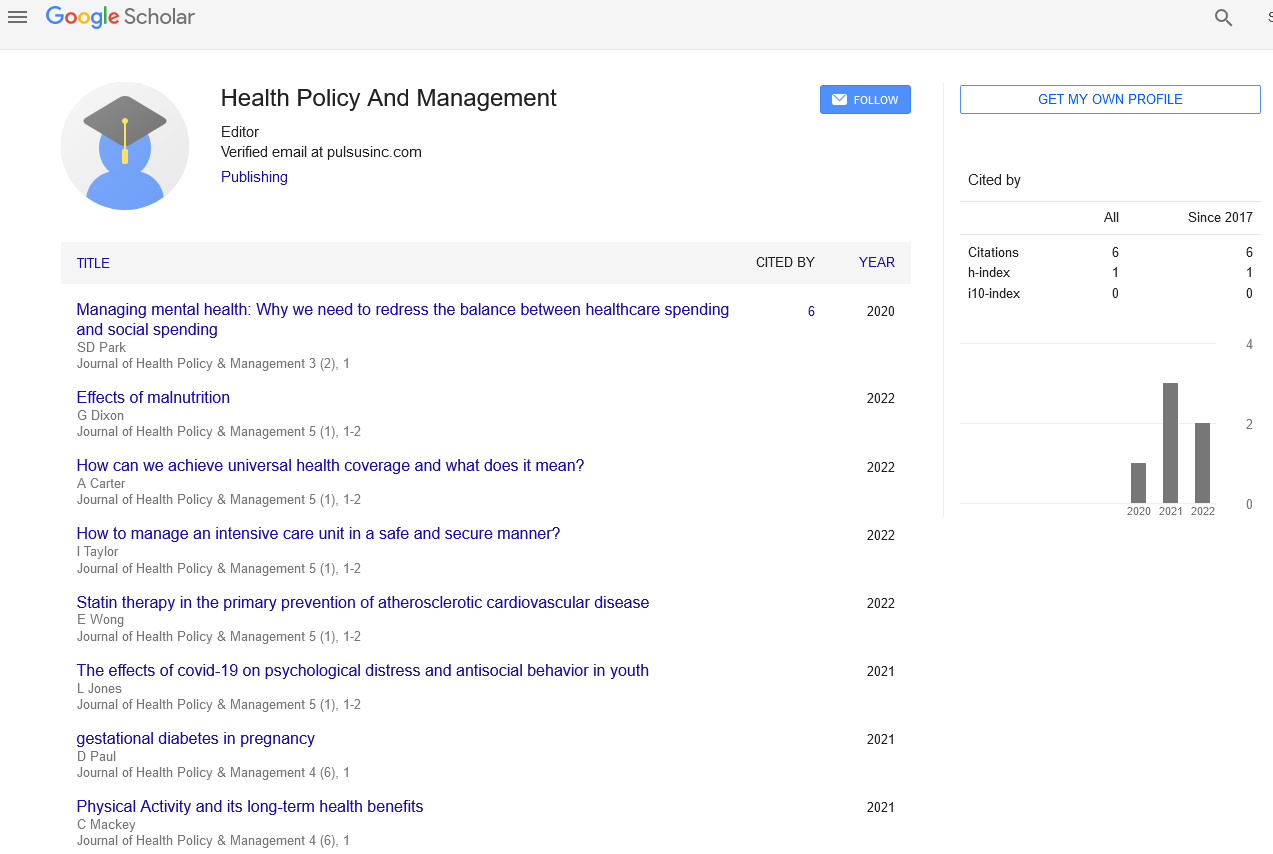
Sign up for email alert when new content gets added: Sign up
Abstract
Assessment of knowledge, attitude and practice regarding conflict management among nurses at work place environment
Author(s): Nasim Saif, Asifa Shahzadi*, Ambreen Shahzadi, Asia Aish, Sana Shahzadi, Sanyia Arif, Iqra Basharat, Najma Qasim and Sobia TahiraINTRODUCTION: Educating the nursing staff at their workplace and emotional intelligence can help managers to effectively deal with conflicts in the workplace. However, the correlation between conflict management styles and educational level emotional intelligence has not been fully conceptualized.
OBJECTIVES: To assess the knowledge, attitude and practice regarding conflict management among registered nurses and to investigate reasons of the conflict and analyze nurses role in conflict resolution in the work place.
MATERIAL METHODS: A descriptive correlational design was used. A sample of 120 nurse managers completed the study.
RESULTS: The finding of study showing percentage distribution of participants’ age into 5 categories. 73.3% of participants were used collaboration and cooperation technique to resolve the conflict, 60% nurses were replied that accommodation strategy were employed to alleviate the stress during working environment. Majority of respondents apply smoothing technique for stable environment, this also has 61.5% similarity. To use effective strategies in conflict management nurses must develop training program on conflict management in health care facilities.
CONCLUSION: The study identified many scepters of conflict among nurses. Most conflicts are interpersonal, followed by destructive communication, but inter-group conflicts are the least. There is no therapeutic care-patient relationship here. Threatened with conflict, the highest proportion of salaried nurses had a high level of professionalism. Nurses have a responsibility to create a healthy work environment and eliminate conflict.
IMPLICATIONS FOR NURSING MANAGEMENT: This research helps nurses determine effective best practices regarding conflict management and improve patient care knowing the reasons of conflict and types of conflict in work place environment. The findings from peer-reviewed studies can correct old misunderstandings, pave the way of new conflict management and create new methodology.
Full-Text | PDF




